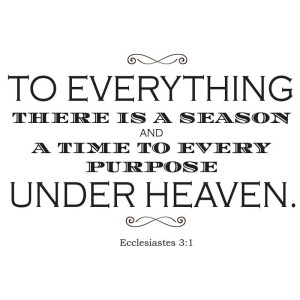How much would you know about the Pilgrims without the celebration of Thanksgiving? Would you remember Plymouth Rock and the Mayflower?
God gave us all a way to learn about His story, and our history, through celebrations and traditions.The Biblical Jewish festivals, and the traditions surrounding them, are an incredible way to delve even deeper in learning and understanding.They absolutely can be observed in and of themselves, apart from any strict religious rules.
Jewish people, even those who have received Jesus, certainly may continue to observe the Jewish festivals and holiday traditions if they decide to. It is completely biblical. Furthermore, the celebrations post -salvation often take on an even deeper significance, and display a richer meaning, than ever before.
Galatians 3:28 says, “There is neither Jew nor Greek, there is neither slave nor free man, there is neither male nor female; for you are all one in Christ Jesus.” Sadly, this secluded verse has been twisted to say that Jews must give up their culture.
To be clear, nowhere in the New Testament does it say that Jewish people should give up their culture. The New Testament simply comes against ANYONE who uses religious practices, or any action or activity, for the appearance of being righteous, to earn favor with God, or who refuses to bend from it regardless of surrounding circumstances.
Romans 3 is quite the heavy duty diatribe against using religion to earn righteousness, and that is the book in the New Testament that has been especially singled out as being considered anti-Semitic. However, Romans 3 discusses how all people, Jews and Gentiles, cannot be justified by their own deeds, that it is the grace of God that justifies any person.
So it follows, Gentiles celebrating the “Gentile” holidays, while these holidays are not in Scripture, or any of the Jewish festivals and holiday traditions that are found in Scripture, if they are celebrating in a way that honors God and deepens their understanding of Him and of our history, beautiful. If they are doing it with any religious intent, or I must do this or else heart, eh well, not so beautiful.
Some, whether Jew or Gentile, while they may profess their dependence on the finished work of Jesus alone, seem to believe that religious traditions and holiday rule keeping somehow elevates their walk with God. This is extremely damaging and dangerous thinking!
I also think it wise to give a word of caution regarding cultural appropriation in regards to what is colloquially known as the Jewish holidays. Cultural appropriation takes place when members of a majority group, adopt cultural elements of a minority group, in a way that comes across as stereotypical, disrespectful, or exploitative. That absolutely may not be the intent, but a loving word of caution on how certain things can be perceived.
Any follower of Jesus (Jewish or Gentile) certainly may observe the festivals and holiday traditions if they choose to, however nothing in the New Testament says that they are a required part of our New Covenant relationship with God. Jesus commanded a commemoration of His death (Luke 22:19-20) but He did not command any observance of any festivals. He also does not forbid us to observe them (Colossians 2, Hebrews 8, Hebrews 10).
Jesus observed the biblical feasts and Jewish traditions because He was born under the Law while the Old Covenant was still in force. Festivals, sabbaths, the tabernacle, the laws of sacrifices were shadows pointing forward to the fulfillment in Him, in Jesus. The Old Covenant specified holy places and holy times, but the New Testament does not label any time as “holy.” When we have been given the spiritual reality, we are not bound by physical worship rules.
May you be blessed by the realization of the intensity of God’s love and grace!
New Year’s Eve: Seeing Things Differently
New Year’s Day: Happy New Year! and Looking Forward
Tu B’Shevat: The New Year of Trees
Purim: For Such A Time As This
Passover: Passover/Pesach
Good Friday: What is good about it?
Resurrection Sunday [Easter]: What is the hope?
Yom Hashoah: Holocaust Remembrance Day
Shavuot: Shavuot: Feast of Weeks – First Fruits – Pentecost
Rosh Hashanah: Rosh Hashanah
Yom Kippur: Yom Kippur
Sukkot: Sukkot
Chanukah/Hanukkah: Chanukah/Hanukkah
Menorah Lighting Prayers
Dreidel Game
Christmas: Christmas
Jewish Holiday Dates: The Jewish calendar is based on three astronomical phenomena: the rotation of the Earth about its axis (a day); the revolution of the moon about the Earth (a month); and the revolution of the Earth about the sun (a year). The civil calendar used by most of the world does not have any correlation between the moon cycles and the month, arbitrarily setting the length of months to 28, 30 or 31 days. So, the Jewish holidays fall on a different civil calendar date each year. In addition, being technical, holidays begin at sunset, and end at nightfall, on the days listed.
With love,
Diane

